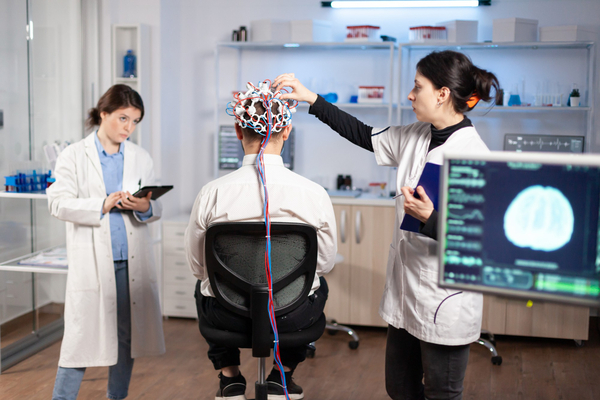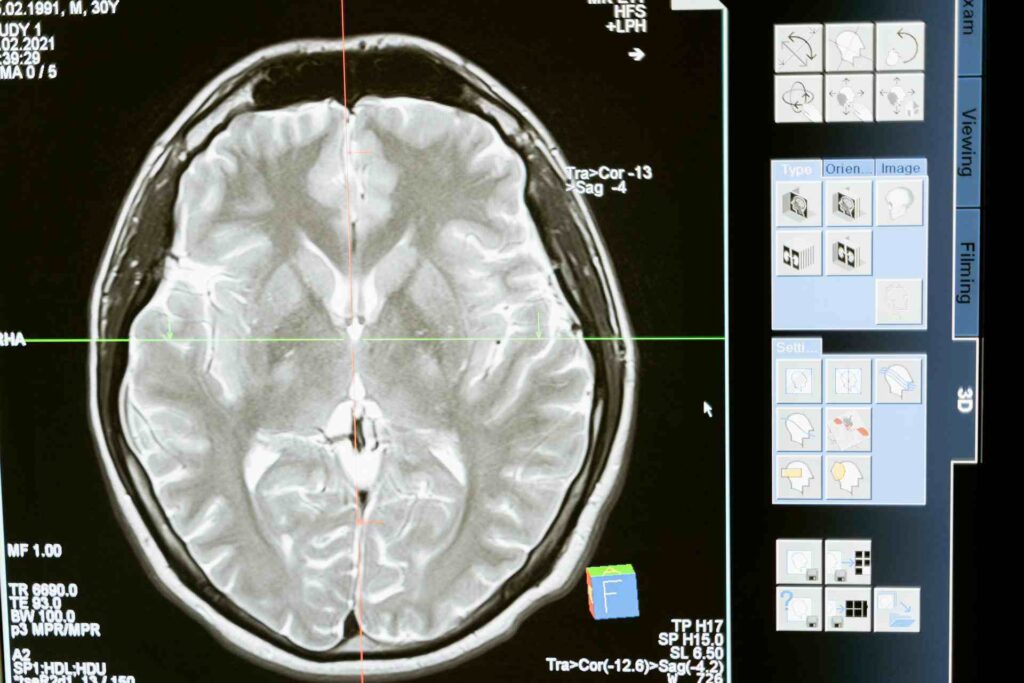What Role Do Forensic Psychologists Play In Custody Disputes?
Child custody disputes often resolve without intervention. The American Psychological Association (APA) estimates that around 90% of these cases are settled independently by the parties involved. But when conflicts over custody or visitation remain unresolved, a forensic psychologist steps in to conduct a child custody evaluation.
These professionals may be court-appointed, agreed upon by both parties, or hired by one side—typically in highly contentious situations. Their primary goal is to help clarify custody-related concerns within family court proceedings.
Child custody is frequently the central issue in family law disputes. However, other matters like child support, spousal maintenance, property valuation, parental relocation, and even termination of parental rights may also require resolution during these cases.In many of these cases, forensic psychologists may play a vital role, providing expert evaluations and insights to assist the court in making decisions that serve the best interests of the child.

Practical Tips for Forensic Psychologists Conducting Child Custody Evaluations
The American Psychological Association (APA) established Guidelines for Child Custody Evaluations in Divorce Proceedings in 1994, with updates released in 2009. These guidelines are aspirational, meaning they aren’t mandatory but serve as a framework to support forensic psychologists in delivering high-quality evaluations. They also aim to advance the field of forensic psychology.
Forensic child psychologists often rely on these guidelines alongside their professional expertise. Here’s a breakdown of the key principles they follow:
- Focus on the Child’s Best Interests
The primary goal is to evaluate and determine what arrangement is in the best interest of the child. - Prioritize the Child’s Well-Being
The welfare of the child must always come first throughout the evaluation process. - Assess Parenting Skills and Psychological Needs
Evaluations should explore the parenting capabilities of each parent and the specific emotional and psychological needs of the child. - Maintain Specialized Expertise
Psychologists are encouraged to gain and update their knowledge in this specialized area of practice regularly. - Stay Neutral and Unbiased
Acting as impartial evaluators ensures that psychologists provide fair assessments without bias. - Be Culturally Sensitive
It’s crucial to perform evaluations with cultural awareness and avoid discriminatory practices. - Avoid Conflicts of Interest
Psychologists must steer clear of multiple relationships or situations that could compromise their objectivity. - Define the Evaluation Scope Clearly
Establishing the evaluation’s purpose and limits early on ensures clarity and consistency. - Obtain Informed Consent
Proper consent from all relevant parties must be obtained before beginning the evaluation. - Use Multiple Data Sources
Collecting information through various methods strengthens the reliability of the findings. - Interpret Data Contextually
Assessment data must be analyzed with careful attention to the context of the custody evaluation. - Employ Comprehensive Examinations
Combining different assessment techniques can provide a well-rounded view of the case. - Focus on Psychological Interests
Recommendations should always align with the child’s psychological and emotional well-being. - Maintain Professional Records
Keeping detailed, ethical, and legal records is a fundamental part of the evaluation process.
The Role of Psychological Tests in Custody Cases
Did you know that family court judges sometimes turn to psychological assessments for parents during custody disputes? These tests focus solely on the parents and don’t involve direct interviews with the child. The primary aim is to evaluate the parents’ psychological stability and suitability for custody.
Consider State-Specific Guidelines
In addition to the APA guidelines, many states have their own standards for child custody evaluations. For instance, states like New Jersey, Pennsylvania, and Delaware have established specific protocols. Forensic psychologists should always consider both state and national guidelines when conducting evaluations to ensure they meet legal and ethical standards.
By adhering to these principles, forensic child psychologists contribute to fair and effective custody decisions, always keeping the child’s best interests at heart.

The Role of Forensic Psychologist in Child Custody Cases
Understanding the responsibilities of forensic psychologists in child custody disputes can provide clarity about their critical role. Below, we delve into their key tasks and the expertise they bring to the table.
Data Gathering: The Foundation of Evaluations
Forensic psychologists in custody cases collect extensive data to evaluate disputes effectively. The American Psychological Association (APA) emphasizes that using diverse methods of data collection enhances the reliability of evaluations. Common sources of data include:
- Psychological testing
- Clinical interviews
- Behavioral observations
- Review of external documentation (e.g., school records, medical reports, childcare provider notes)
- Interviews with collateral sources (e.g., extended family, friends, or acquaintances)
Forensic psychologists also document how the custody conflict may influence the behavior and emotional state of those involved.
Assessing Parents and Forming Objective Opinions
A vital part of the forensic psychologist’s role is evaluating the parents involved in a custody case. Following the APA Ethics Code, psychologists are required to conduct comprehensive assessments before offering any opinions.
Once all relevant data is analyzed, psychologists provide recommendations to the court. These recommendations must prioritize the child’s psychological well-being and should be grounded in evidence, not personal biases or unverified beliefs. Recommendations must adhere to professional and scientific standards.
Additionally, psychologists maintain detailed records to ensure transparency and allow other professionals to review or challenge their findings if necessary.
Preparation for Custody Evaluations
Before performing a custody evaluation, forensic psychologists must have a strong foundation in several areas:
- Understanding different types of divorce and how they affect children across various age groups
- Knowledge of custody arrangements and visitation laws
- Expertise in child and adolescent assessments, including mental health, personality, and family dynamics
- Familiarity with legal definitions and state-specific custody laws
Conducting Comprehensive Custody Evaluations
Forensic child psychologists follow a structured process to ensure fairness and consistency. Key components of a thorough custody evaluation include:
- Interviews with primary caregivers and any adults directly involved in the child’s daily life.
- Comprehensive life histories, offering insight into the family’s background and dynamics.
- Parenting philosophy assessments, evaluating each parent’s approach to child-rearing.
- Understanding events leading to the custody dispute and their impact on the family.
- Review of supporting documents, such as medical and school records or legal reports.
- Psychological testing, which may include cognitive, personality, and parenting assessments.
- Child interviews, conducted carefully to minimize stress or harm.
Finally, psychologists compile their findings into a detailed report, including a summary, conclusions, and recommendations. This report highlights how their professional analysis informed their recommendations.
Ensuring Ethical and Fair Practices
Forensic psychologists are committed to ensuring that custody evaluations are equitable. Every party involved must be treated fairly, and all procedures must be administered consistently.
By adhering to these practices and leveraging their expertise, forensic psychologists aim to support decisions that are in the best psychological interest of the child.

Debunking Common Misconceptions About Custody Evaluations
When parents are navigating custody disputes, custody evaluations can play a significant role in the court’s decision-making process. However, there are several misconceptions about these evaluations that can cause confusion or lead to misunderstandings. It’s essential to clear up these myths so that individuals involved in a custody case can make informed decisions and better understand the process.
Misconceptions About Psychological Tests
A common misconception about psychological tests used in custody evaluations is that they can offer a definitive answer regarding who should get custody of the children. In reality, these tests are only one tool among many that psychologists use to assess the mental health and suitability of parents. The tests provide insights into various aspects of personality, mental health, and behavior, but they are not the sole determining factor in custody decisions. For instance, a psychological test might reveal stress levels or emotional issues, but it doesn’t mean a parent is automatically unfit for custody. The results are always considered alongside other evidence, such as parental involvement, stability, and the child’s needs.
Another misconception is that these tests are completely objective and provide an absolute assessment of a parent’s character. While these tests are scientifically designed, they still rely on subjective interpretations and professional judgment. A psychologist’s conclusions are influenced by their experience and expertise, and different psychologists may interpret the same results in slightly different ways. Parents involved in custody evaluations should remember that psychological tests offer valuable insights but are not the final word on their ability to care for their children.
The Limits of Forensic Psychologist’s Influence on Legal Decisions
Forensic psychologists play an important role in providing insights during custody evaluations, but their influence is limited. While they conduct evaluations, make recommendations, and provide expert testimony, they are not the ones making the final custody decisions. That responsibility lies with the court, which will take the psychologist’s input into account along with other factors, such as the child’s best interests, family dynamics, and relevant legal considerations.
It’s also important to understand that forensic psychologists can only assess the information available to them at the time of the evaluation. They do not have the power to change or make final decisions about the legal aspects of the custody dispute. For example, if one parent has refused to participate in the evaluation or has withheld information, the psychologist cannot force them to cooperate, and the evaluation may be incomplete. The final legal decisions, including custody arrangements, depend on a variety of factors that extend beyond the psychologist’s recommendations.
While forensic psychologists offer valuable expertise, their role is limited to providing an assessment based on the information they have. It’s crucial for parents to recognize that while their insights are influential, they are just one piece of a much larger puzzle in custody disputes.
Conclusion
Forensic psychologists are critical in child custody disputes, offering insights grounded in evidence and a child-focused perspective. Their assessments and recommendations guide courts in making decisions that prioritize the child’s well-being. By adhering to established guidelines and ethical practices, these professionals ensure their evaluations are comprehensive, impartial, and culturally sensitive.
At FC PsycExperts, we specialize in delivering high-quality, unbiased forensic psychological evaluations tailored to the unique needs of child custody cases. Trust our team to provide expert insights that support fair and informed decisions for your family.
FAQs
What is the primary role of a forensic psychologist in custody disputes?
Forensic psychologists conduct evaluations to determine the best custody arrangements for a child. They gather data through interviews, psychological testing, and document reviews, ultimately providing evidence-based recommendations to the court.
Are custody evaluations mandatory in all child custody cases?
No, custody evaluations are not mandatory. They are typically ordered by the court or requested when parents cannot resolve custody disputes independently.
What guidelines do forensic psychologists follow during custody evaluations?
Forensic psychologists often adhere to the American Psychological Association (APA) guidelines and any state-specific protocols. These guidelines emphasize impartiality, the child’s best interests, and the use of evidence-based practices.
Can a forensic psychologist’s recommendation guarantee custody outcomes?
No, a forensic psychologist’s recommendation is influential but not decisive. The court considers their input alongside other factors, such as legal standards and additional evidence, before making a final decision.
How long does a typical custody evaluation take?
The duration of a custody evaluation varies depending on the complexity of the case but often takes several weeks to a few months. This timeline allows for thorough data collection and analysis.
Users Also Say
Family law related, what various experts can be hired to provide evidence that it’s the best interest of the children to be with a particular parent based on their findings?
R** Hu****
We refer to them as “forensic child custody evaluators”—professionals, often psychologists or psychiatrists, trained to assess children and parents and provide “recommendations.”
As a firm believer in evidence-based expert testimony, I maintain that any recommendation presented in court should be grounded in solid scientific backing. Without that foundation, such recommendations have little value and should be excluded from legal proceedings. In many cases, these evaluations are less credible than they appear and, unfortunately, sometimes serve as a lucrative enterprise for those involved.
That said, these evaluators can provide valuable data. My main concern arises when they go beyond presenting their findings and venture into making unsupported recommendations.
Ultimately, no evaluator’s opinion can change the fundamental question of whether you are, in the eyes of most reasonable people, a “good” parent. Focus on being the best parent you can be, and let the expert opinions take a back seat.
































